Beit Yisrael International: Next to recognize a Palestinian state, the next wave that France is planning – and how Israel will behave
Beit Yisrael International: Next to recognize a Palestinian state, the next wave that France is planning – and how Israel will behave
Next to recognize a Palestinian state, the next wave that France is planning – and how Israel will behave
Portugal has joined the declaration by Britain, Australia and Canada, at least six more countries will be added – and although the recognition will not change anything on the ground, it will demand that Israel respond. Netanyahu has postponed the decision to return from the United States, and in the meantime, Macron plans to enlist East Asian countries. In London, Ottawa and Canberra, not everyone liked the decision: "We recognized a Hamas state that rewards terrorism." The Palestinians, for their part, believe that "the solution is only political." And what did Abu Mazen give? Putting things in order
Einav Halabi |Updated:
The announcement by Britain, Canada and Australia of recognition of a Palestinian state last night (Sunday) is only the beginning of a wave of recognition planned starting today, in parallel with the convening of the UN General Assembly - and tonight they were joined by Portugal, which announced recognition of a Palestinian state. At the same time, France, which together with Saudi Arabia is initiating the drift of recognition, is planning another wave later on and is counting on the possibility that Israel will decide to annex parts of Judea and Samaria. But in Jerusalem, a decision has not yet been made, and it, as Prime Minister Netanyahu said, will be made later. So what is the practical significance of the recognition, has the move been welcomed within Britain, Canada and Australia as well, and who will announce it next? Ynet puts things in order.
"
How many countries in the world have already recognized a Palestinian state?
With the decision of the four countries to recognize a Palestinian state, the number of countries in the world that have announced that they recognize a Palestinian state stands at 152.
Who are the following countries?
Later this week, six to eight more countries are expected to recognize a Palestinian state, which will do so as part of the UN General Assembly: France, Belgium, Malta, San Marino, Andorra and Luxembourg. There is a question mark about two other countries: New Zealand, which usually follows Australia, and Finland.
What is the practical significance of recognition?
In principle, recognition of a Palestinian state at the moment has no practical significance on the ground, but rather symbolic. In the records of the countries that recognized a Palestinian state, the definition of "Palestine" has already been changed, as has the UK's travel warning website, where they have already added a map of the country, and a call to avoid reaching all parts of the country.
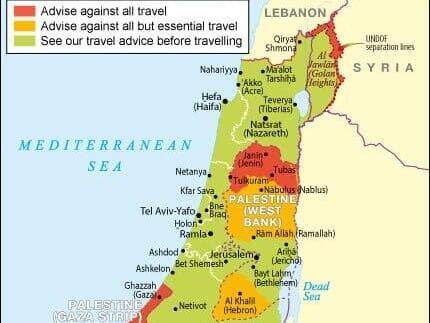
Palestine - UK Travel Warnings website
But for now, no embassies of Canada, Australia or Britain are expected to open in Ramallah. Moreover, despite the declaration, the State of Palestine – as defined by the UN – will not yet become a full member of the UN. The U.S. will probably do so if the Palestinians choose to try anyway.
Are other countries expected to get to know each other?
As part of French President Macron's initiative, he plans to try to enlist other countries, with an emphasis on East Asia. The French also plan to bring Japan, South Korea and Singapore to recognize a Palestinian state. In the eyes of the French, if Israel decides to annex Judea and Samaria or parts of it, it is possible that Germany will also join if it can no longer tolerate Israel's steps. Germany has made it clear that it will not accept annexation, even hinting that it could lead it to recognize a Palestinian state.
How does Israel plan to respond?
In Israel, a decision has not yet been made on how to respond. But several options are on the agenda, chief among them the annexation of the Jordan Valley, a step that Netanyahu's close associate Ron Dermer said he could pass relatively quietly in the United States, even among the Democrats. Either way, the range of options actually ranges from total restraint — which is unlikely to happen — to the annexation of all of Judea and Samaria, which seems unlikely to happen. Netanyahu will not want to jeopardize the Abraham Accords, and Trump will not let him destroy his legacy.
When will the reaction be?
Despite the demands of members of the Yesha Council and Ministers Itamar Ben-Gvir and Bezalel Smotrich, Prime Minister Netanyahu yesterday removed the possibility of an immediate response from the table. "The answer to the latest attempt to impose a terrorist state on us in the heart of our country will be given after my return from the United States.
Did Canada, Australia and the UK all respond positively?
Nope. On the leftin Britain, Prime Minister Keir Starmer of Labour did congratulate him, but Nigel Farage, leader of the hawkish right-wing party Reform UK, called the move a "reward for Hamas terrorists." Kemi Bidennock, leader of the Conservative Party that also heads the opposition, said: "It's a disaster, it's just a disaster. A reward for terrorism, without any conditions assigned to Hamas. This leaves the abductees dying in Gaza." A poll in Britain conducted before the announcement found that 9 out of 10 Britons do not agree to unconditional recognition.
InAustralia, Prime Minister Anthony Albanese, also from Labor, attacked the decision, mainly from the right. Opposition leader and Liberal Party leader Susan Lee said the recognition was supposed to take place at the end of the peace process - not during the conflict. "The Albanisi government has made a hollow gesture of false hope for the Palestinian people, and for the Israeli people, it has extended a chilling act of concession to the Hamas terrorists, who continue to aspire to destroy them," she said.
In Canada, too, not everyone welcomed Prime Minister Mark Carney's decision. "He recognizes the Hamas state as a further effort to distract from crime, debt, immigration and job loss," wrote opposition leader Pierre Poliabé, who heads the conservative party. "Karni's priority is to create a Hamas state that will reward terrorists for raping civilians, kidnapping, oppressing Palestinians and starting a war. Conservatives support Israel's right to exist and defend itself, and to live alongside a demilitarized, terror-free, democratic and peaceful Palestinian state."
What did Abu Mazen give?
Australia and Canada, they announced, demanded that the Palestinian Authority carry out a series of reforms – as a condition for recognition. When Ramallah agreed, Canberra and Ottawa decided to move forward. According to the Australian announcement, Abbas was required to express his recognition of Israel's right to exist and pledged to hold democratic elections in the Palestinian Authority as early as next year, in 2026. In addition, he committed to reforms in the economic, government, and education fields. Australia made it clear that as far as they were concerned, Hamas had no place in the future Palestinian state.
Canada also mentioned the reforms that the PA has committed, but did not elaborate in the statement. Last week, Canadian Foreign Minister Anita Anand said Ottawa was demanding the release of all hostages, the disarming of Hamas, a ban on taking part in the country's future administration — and unspecified democratic reforms. The two countries made it clear that any further step in upgrading relations – such as opening embassies – depends on the actions of the Palestinian Authority and the implementation of the demands for reforms.
What did the Palestinians say?
Ramallah welcomed the recognition of Britain, Australia and Canada, and Hamas also responded positively. There were even those in the Palestinian Authority who called the resolution "the Balfour Declaration of the Palestinians." Jamal Nazzal, a Fatah spokesman, told Ynet, "We are against Hamas and against what happened on October 7. But they say that there is no difference between Fatah and Hamas – because they don't want peace. We call for the establishment of a Palestinian state alongside Israel, and not instead of Israel. This is a blow to the Hamas plan." Nazzal added that even if Israel tries to weaken the Palestinian Authority following international recognition, Fatah's position is "to maintain a political track, peace and stability, while preserving the sovereignty of the Palestinian state and the legal significance of the 1967 borders."
Nasser Laham, a senior PLO official close to Abbas, said that although Israel usually responds to measures such as recognizing a Palestinian state by military force and expanding settlements, it has "suffered an unprecedented failure in the international and Arab arenas." According to him, "The historical reality remains the same – there is no solution, but a political one. Right-wing ministers can place 1,000 iron gates at the entrances to cities and villages in the West Bank."
Are special measures expected vis-à-vis France?
Israel has already conveyed messages to the French that it will take strong diplomatic steps. One option is to close the French consulate in Jerusalem, which is responsible for relations with the Palestinians. The French have made it clear that they will not move such a step on the agenda. The French media also talked about the possibility of reciprocal measures, such as expelling Israeli diplomats and reducing the Mossad's branch in Paris.
A senior French diplomat said this evening, "We have conveyed messages to Israel that it should not respond harshly. With all due respect, Israel is a small country and France is a superpower. Our ability to hurt you is greater than your ability to hurt us. Anyone who thinks that Trump will let Netanyahu go on a rampage and decide on annexation and destroy the Abraham Accords is mistaken. Trump doesn't work for Bibi."
How will the U.S. act?
The biggest question mark is what green light Trump will give. Netanyahu is expected to raise the issue at his meeting with the president in the United States, on the sidelines of the UN General Assembly. But Trump can give the green light for harsh diplomatic measures against France, since the Americans do not like Macron and will not shed a tear if Israel punishes the French, a move that could lead to an exchange of diplomatic blows between the sides. Either way, the dilemma is difficult.
First published: 22:07, 21.09.25
Google Translation from: מדינה פלסטינית: כל התשובות לשאלות על ההכרה, ותגובת ישראל
click: Get RSS feed updates to your inbox
This blog, Beit Yisrael International news updates is a part of:
Google Translation from: מדינה פלסטינית: כל התשובות לשאלות על ההכרה, ותגובת ישראל
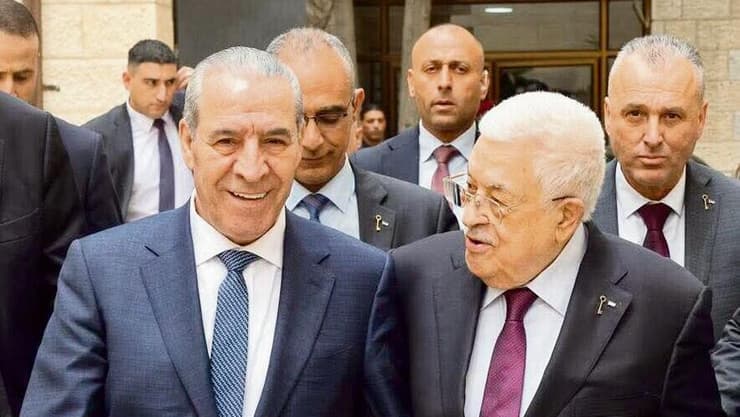
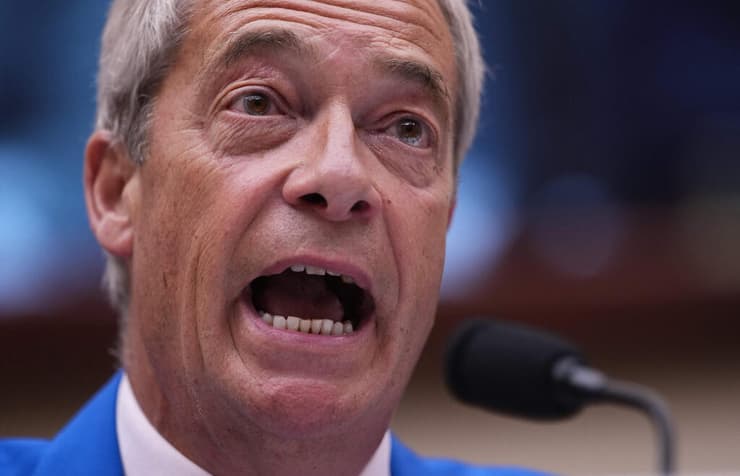
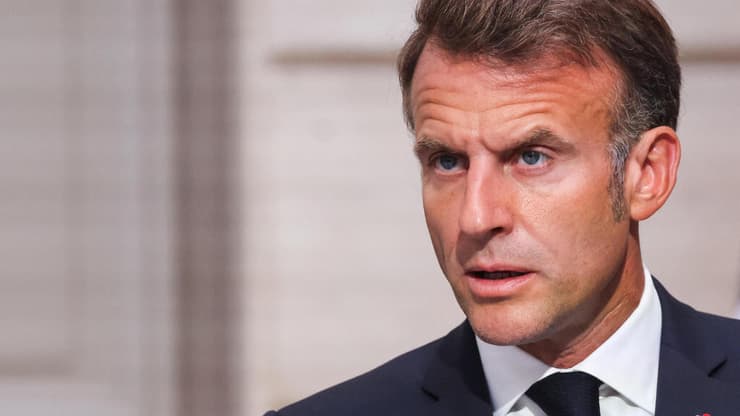
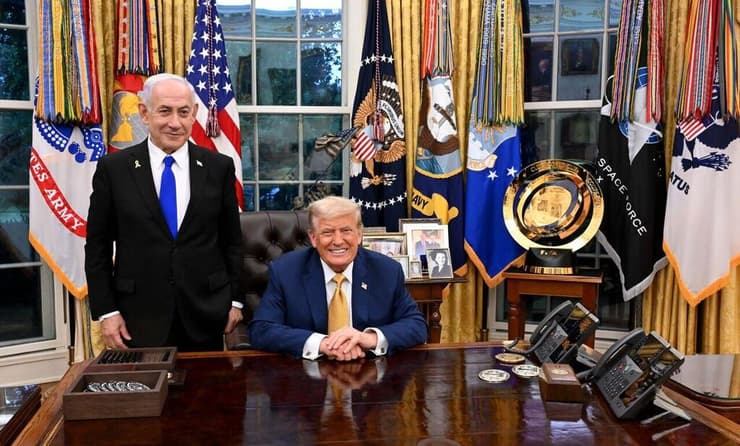

Comments
Post a Comment